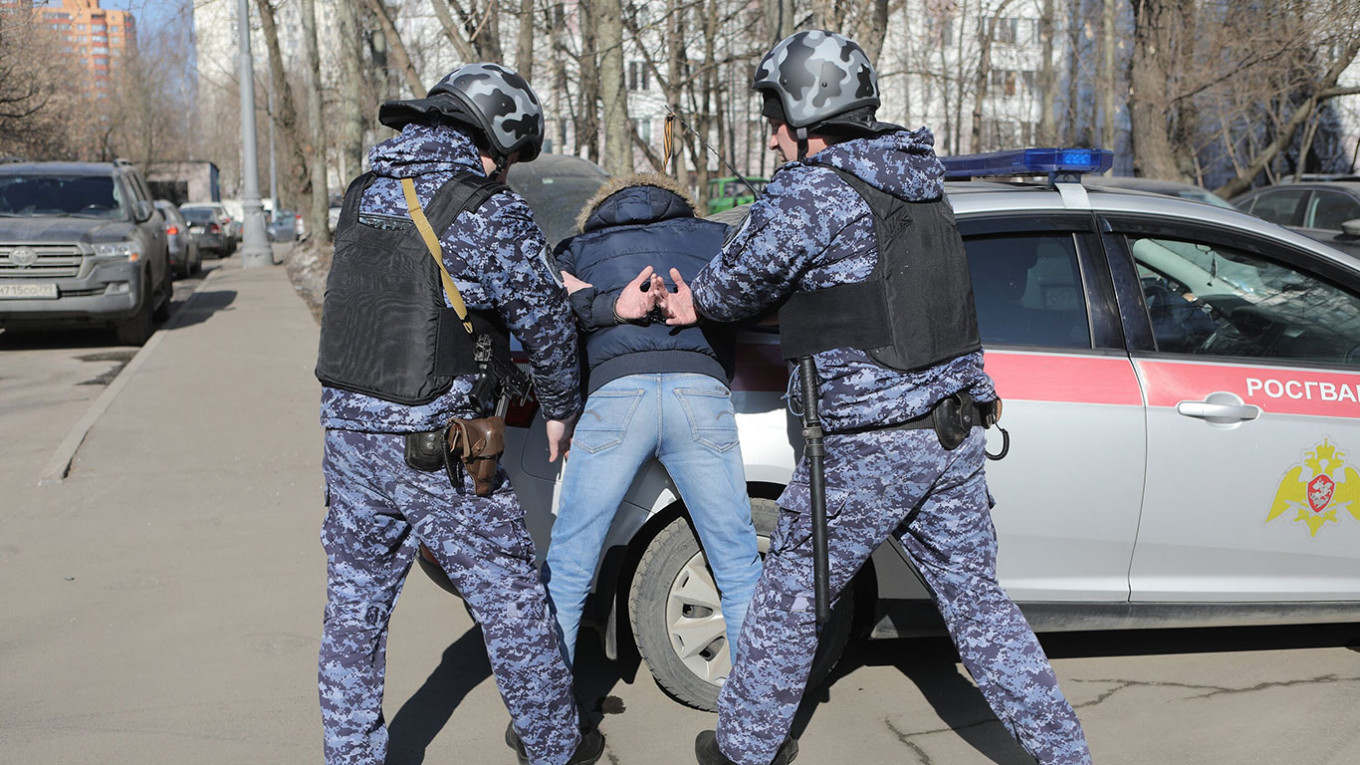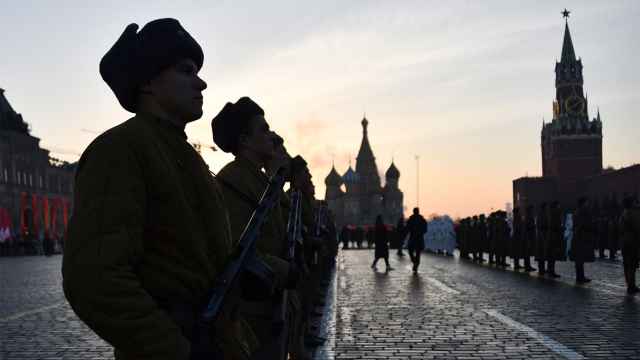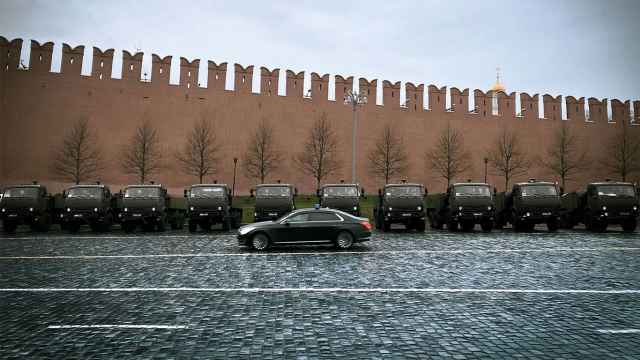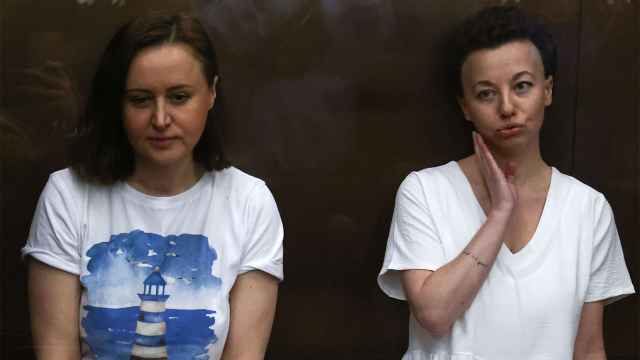A number of repressive laws have been introduced in Russia since the begining of the invasion of Ukraine, including two laws, one criminal and one administrative, that essentially criminalize independent reporting on the war and virtually any protests against it.
Amendments to Article 20.3.3 of the Administrative Code to "protect the Armed Forces" took effect March 4. Since then, according to OVD-Info, the article has been applied against 556 people.
Many of these cases appear absurd. At the end of March an activist was detained in Moscow for a poster with eight asterisks. Before that, pacifists had been arrested for holding blank sheets of paper, the novel “War and Peace,” a quote from George Orwell, and other seemingly harmless things.
Anthropologist Alexandra Arkhipova conducted research using open data in social networks and the media to determine which actions have been most often prosecuted under the new law. She found that people are detained most often for attending rallies or pickets, including one-person protests.
The second top violation is statements on social networks. Comments, posts and reposts are all considered violations of the law, and more than a hundred people have been charged. In third place is graffiti. Slogans on walls in public places are especially numerous in large cities with an educated and young population, Arkhipova said.
"It is worth noting that some of the people who have drawn anti-war graffiti or inscriptions have been charged with ‘vandalism' and are not included in this data base," she added. In fact, "two dozen more people convicted of vandalism" can be safely added to this statistic. The latest striking example of such enforcement is the prosecution of documentary filmmaker Sergei Yerzhenkov for inscribing "Putin, go away!" on a monument to Lenin.
Arkhipova has concluded that graffiti may be a more successful means of voicing one's opinion.
"I get hundreds of graffiti all over the country [as part of another study], that's not even counting just the 'No to War' slogan and a lot of unique drawings," she says.
Arkhipova said that the new amendments have a lot in common with Article 58-10 of Stalin's Criminal Code, "On Propaganda and Agitation."
"That article was also broadly applied — to a joke, a leaflet or an anonymous letter. Now we see that 20.3.3 is also applicable, for example, to verbal statements — and not just when a representative of the authorities hears it. There are real cases of denunciation," Arkhipova said.
Lawyer Anastasia Burakova agrees with her. "This article of the legal is, of course, made of rubber that can be stretched to cover anything. But since all these statements against the war are not a crime, the article is clearly anti-constitutional. Everyone has the right to freedom of speech and his own opinion," she said.
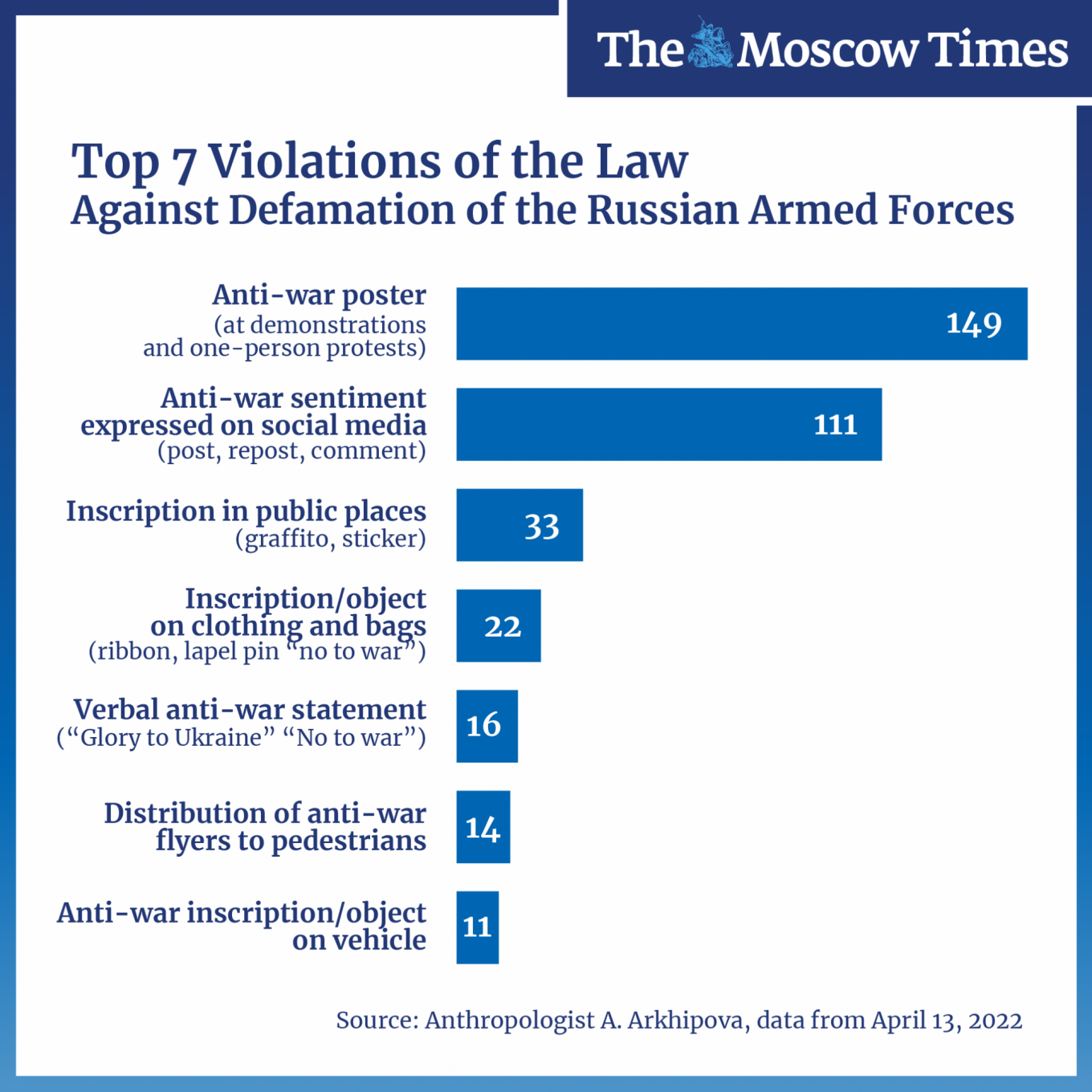
Art performances can also fall under the code, for example, spitting out the letter “Z,” or a protester holding a package of meat from the company Miratorg with part of the name crossed out so it just reads the Russian word for peace.
"There are also counter-messages, which is when a message about the war is embedded in some neutral or official message," Arkhipova said. She cites the replacement of price tags in Kazan’s supermarkets with anti-war messaging as an example.
The article is especially dangerous in the case of repeated violations. Lawyers said that it can lead to a felony charge. But as Burakova explains, it is difficult to give legal advice in such situations, since it is practically impossible to protect yourself if you want to express an anti-war stance.
"As we can see, even a personal telephone conversation is considered public communication," she said.
According to OVD-info, the largest number of detainees, as expected, in Moscow. Courts in the capital have heard 112 cases. St. Petersburg comes in next with 51 cases. Then the statistics are a bit surprising: the third and fourth places seeking to “defend the honor of the Armed Forces" are Tomsk (45) and Krasnodar (34).
Human rights activists link this to the fact that in these regions the new article was used along with the "usual" Article 20.2 — "disruption of an assembly or demonstration by a participant.”
"It is not uncommon for the police to write up two charges, one under Article 20.3.3 for the content of the poster or the subject of the action, and another for participation under Part 5 Article 20.2, including for disobedience to police," Alexander Lokhmutov, a lawyer at OVD-Info, said.
But, Lokhmutov explained, this violates the principle that no one can be prosecuted twice for the same offense.


